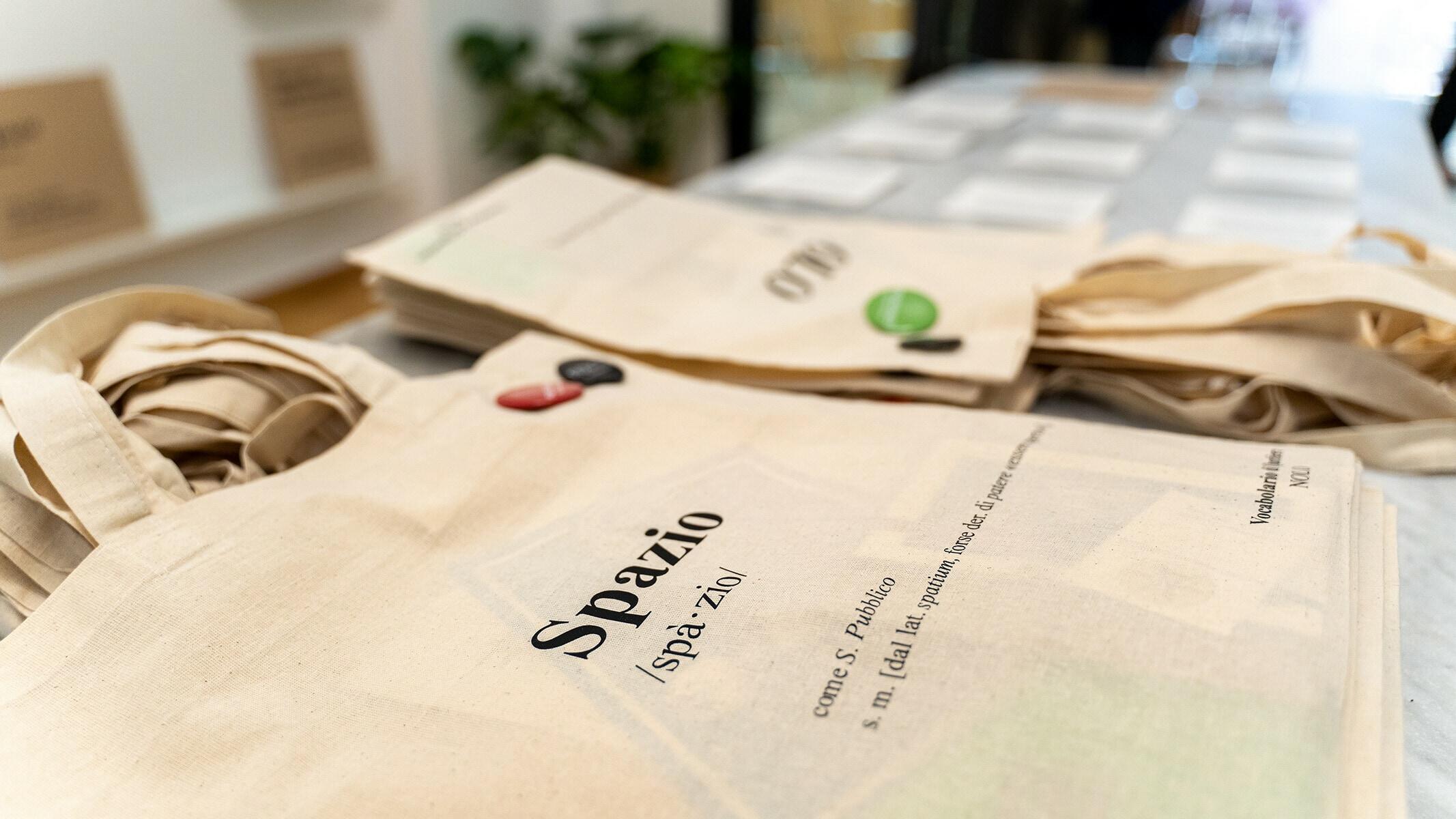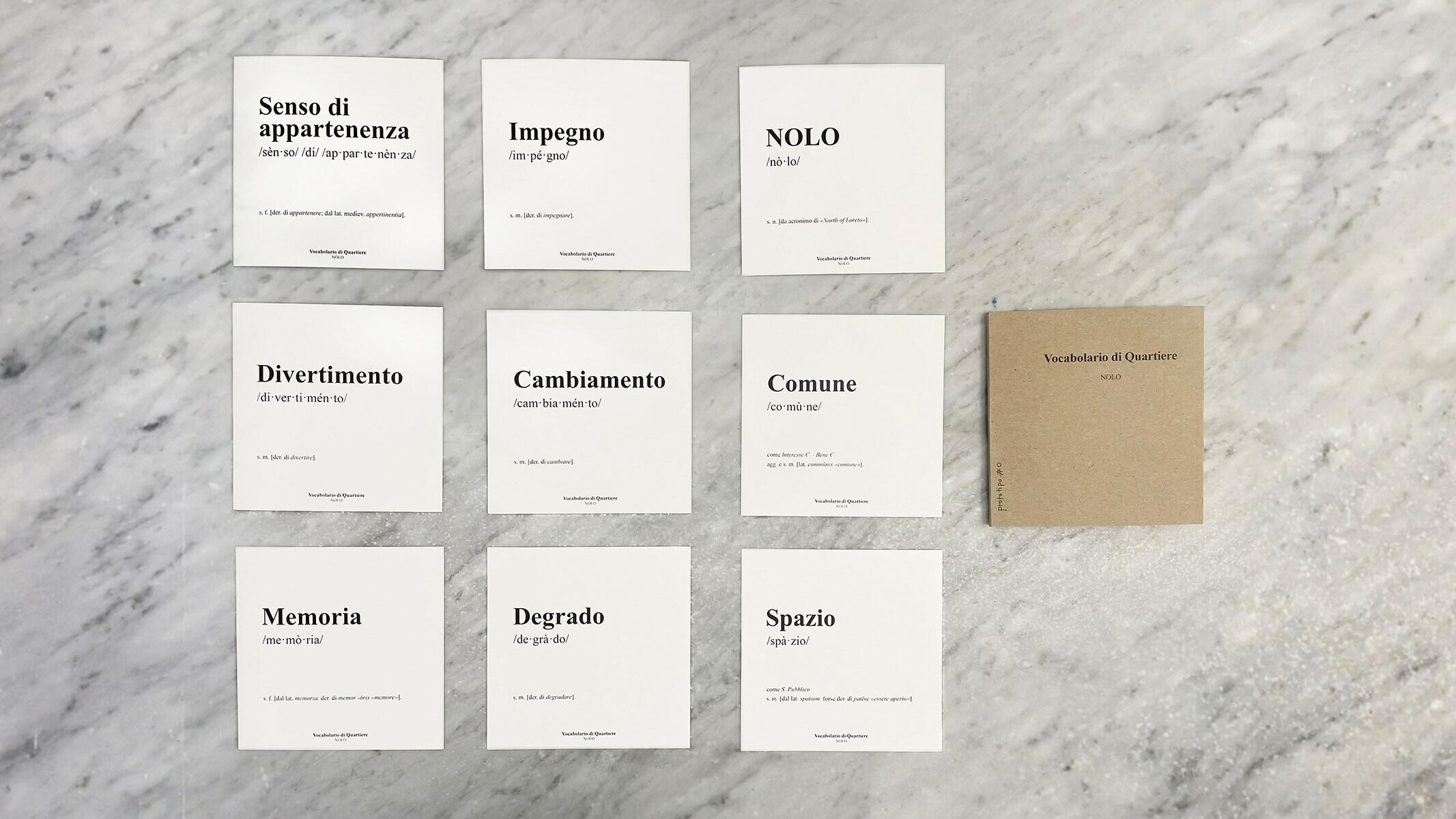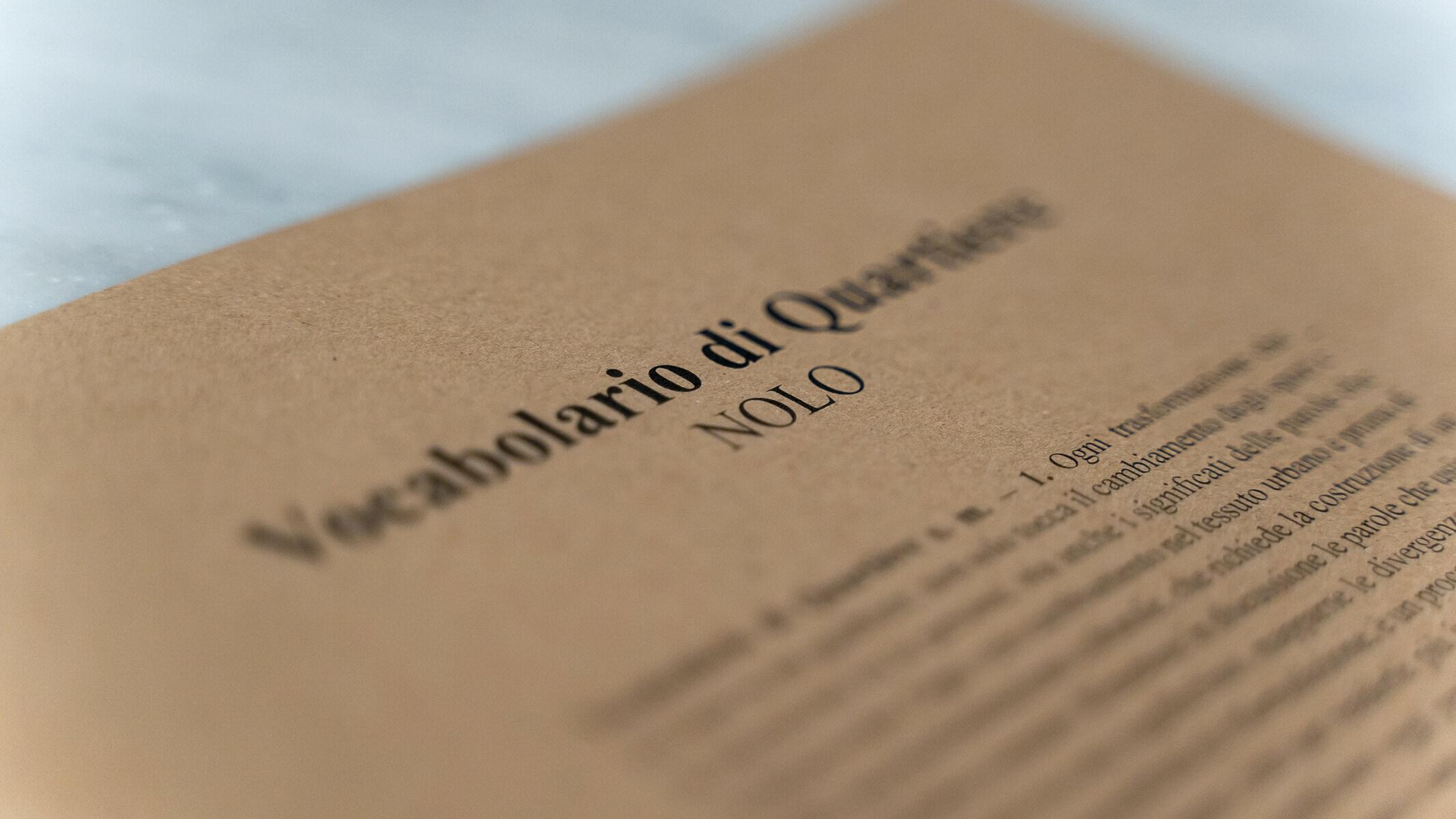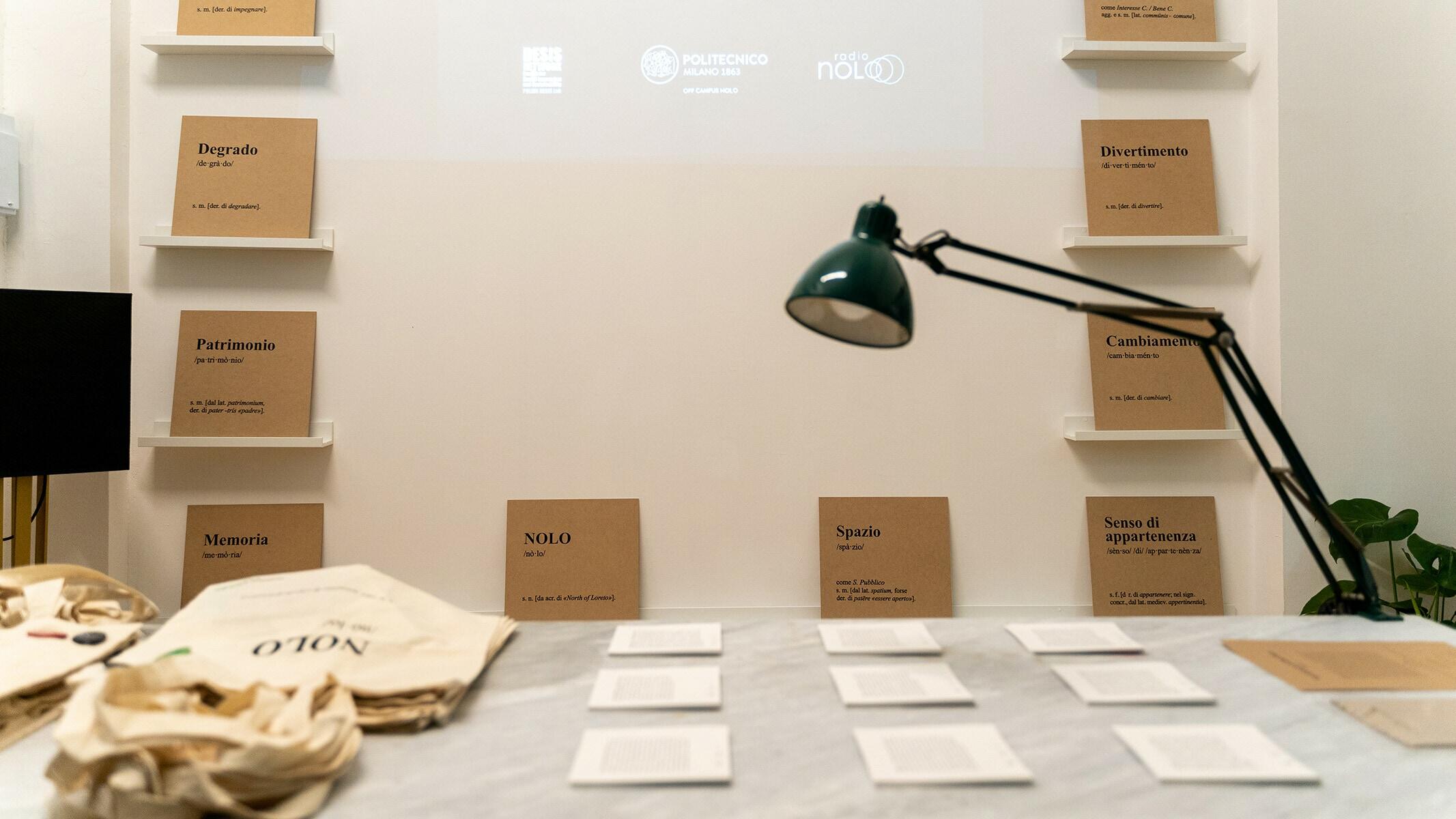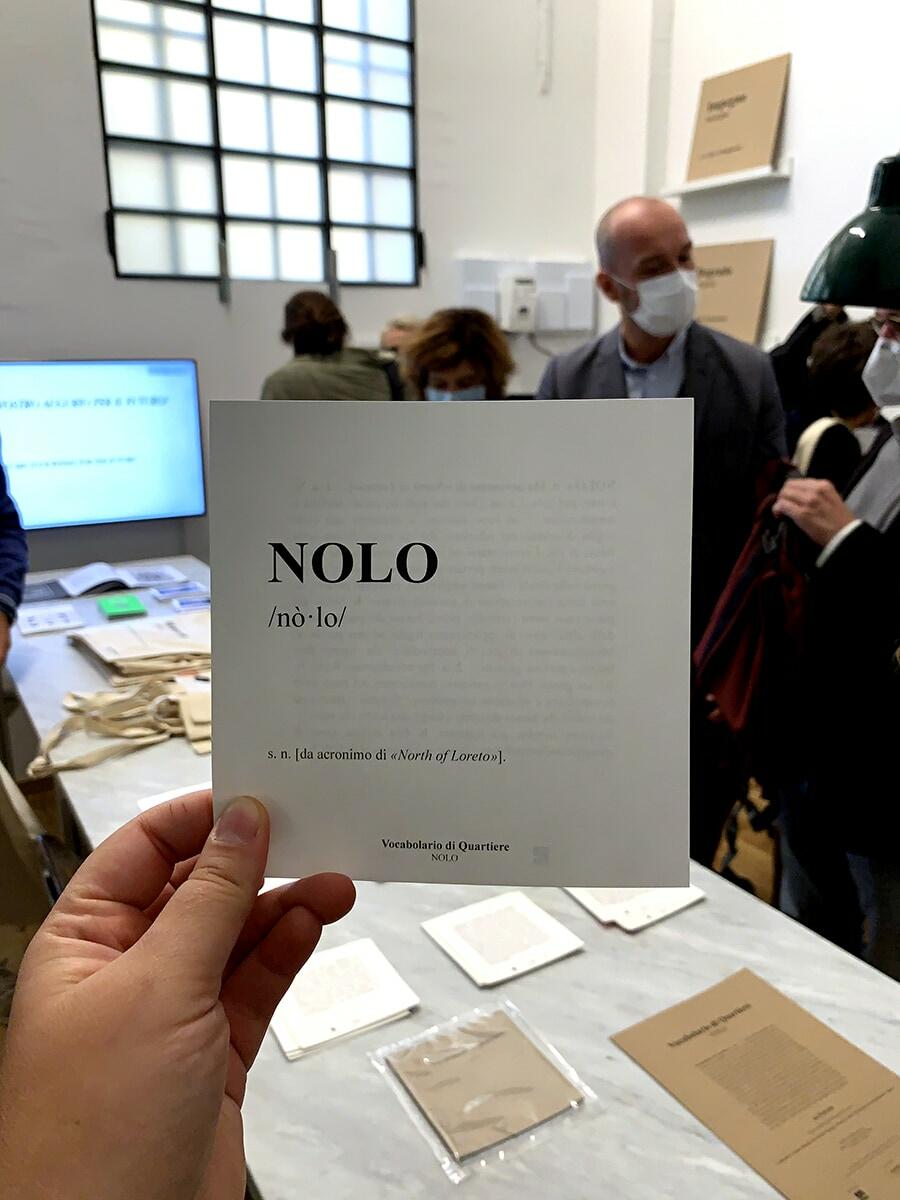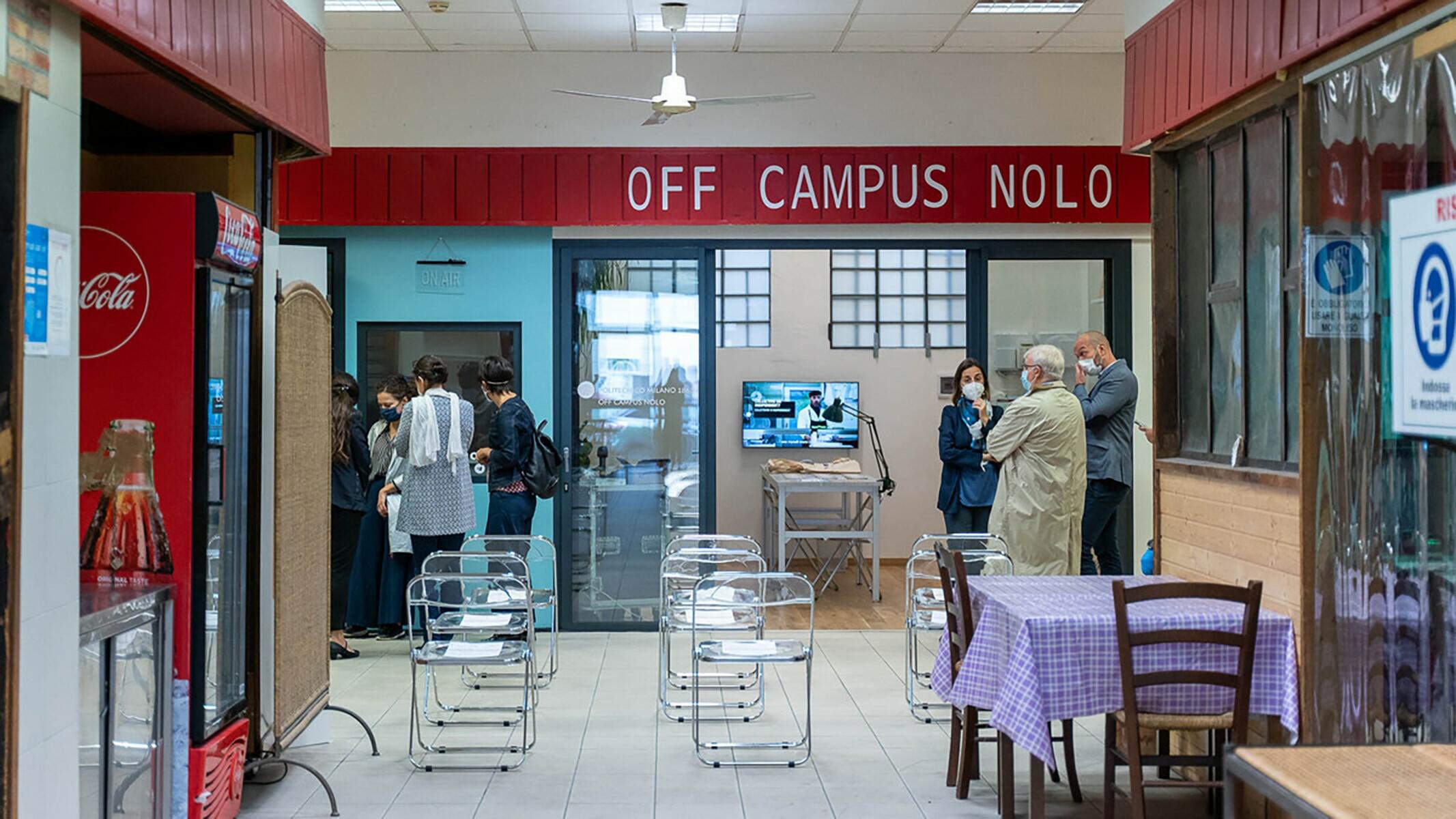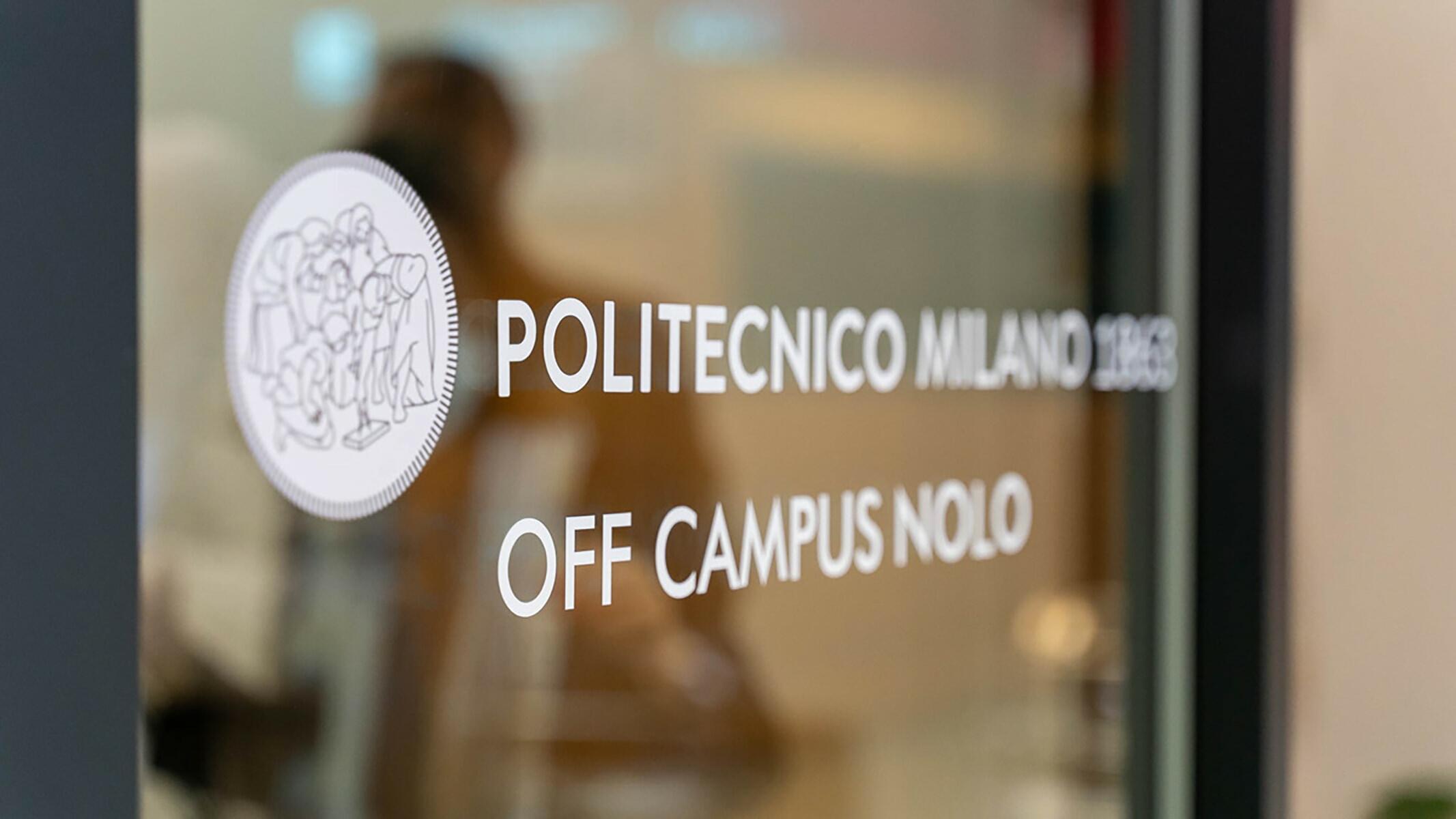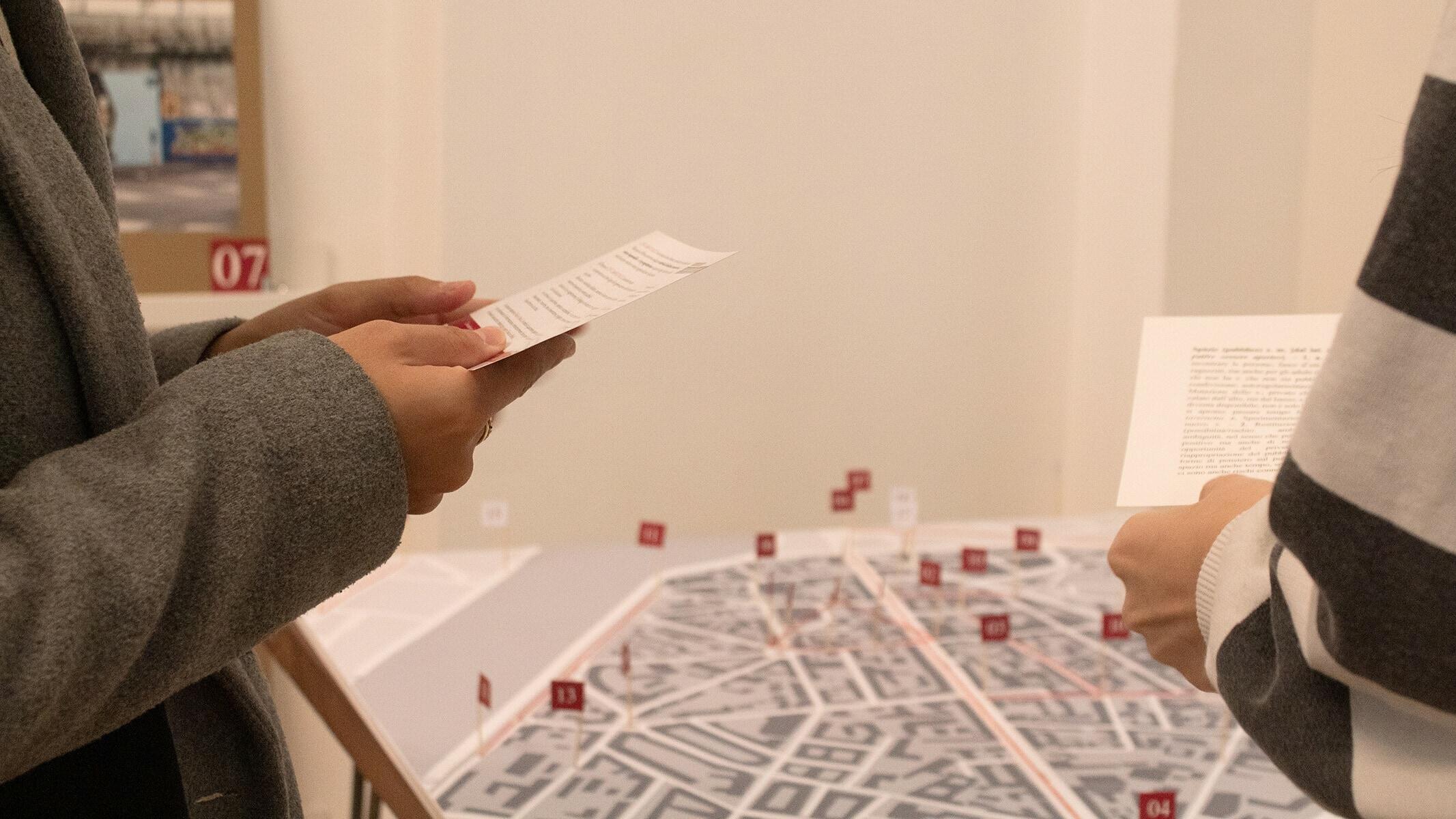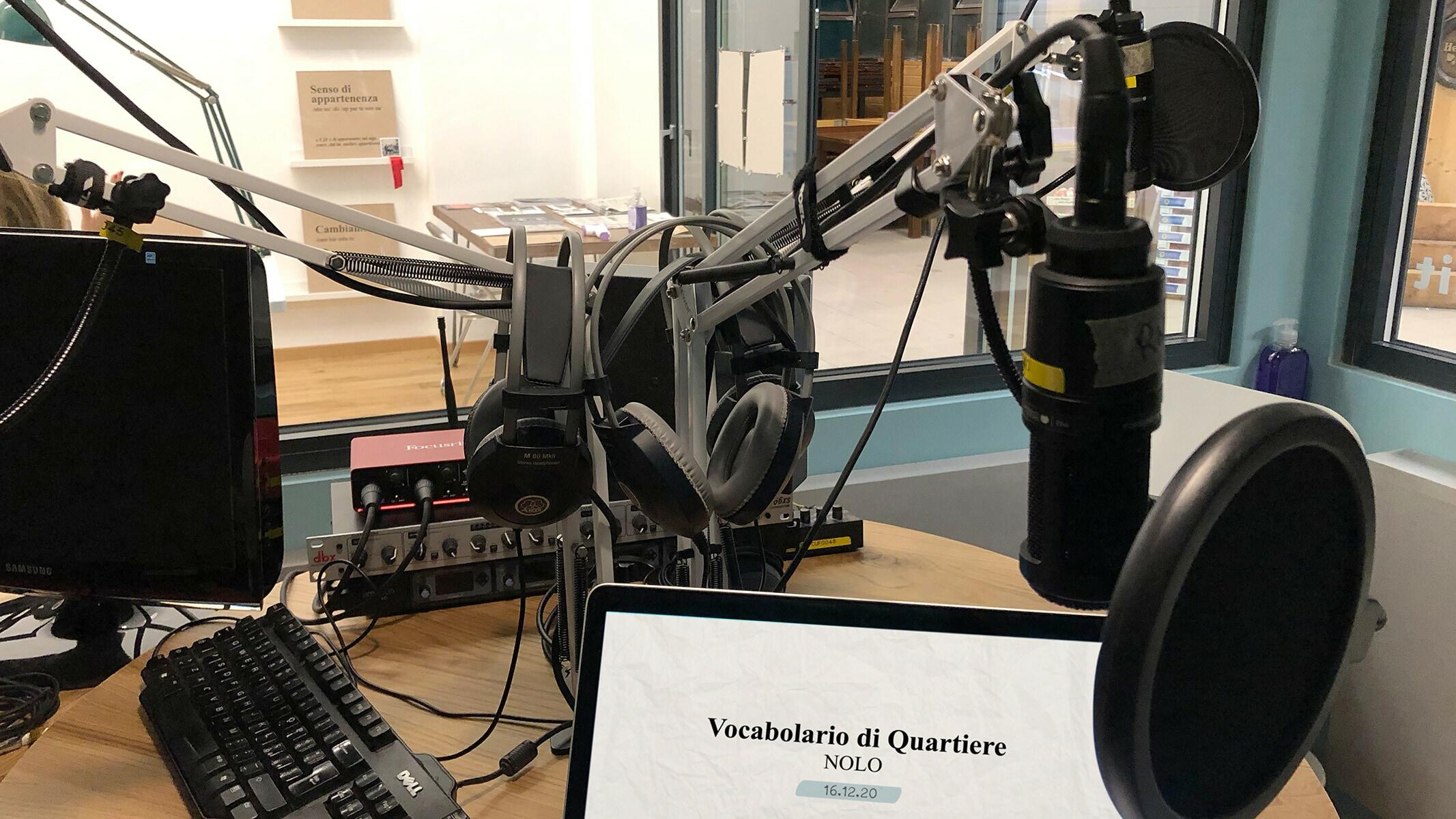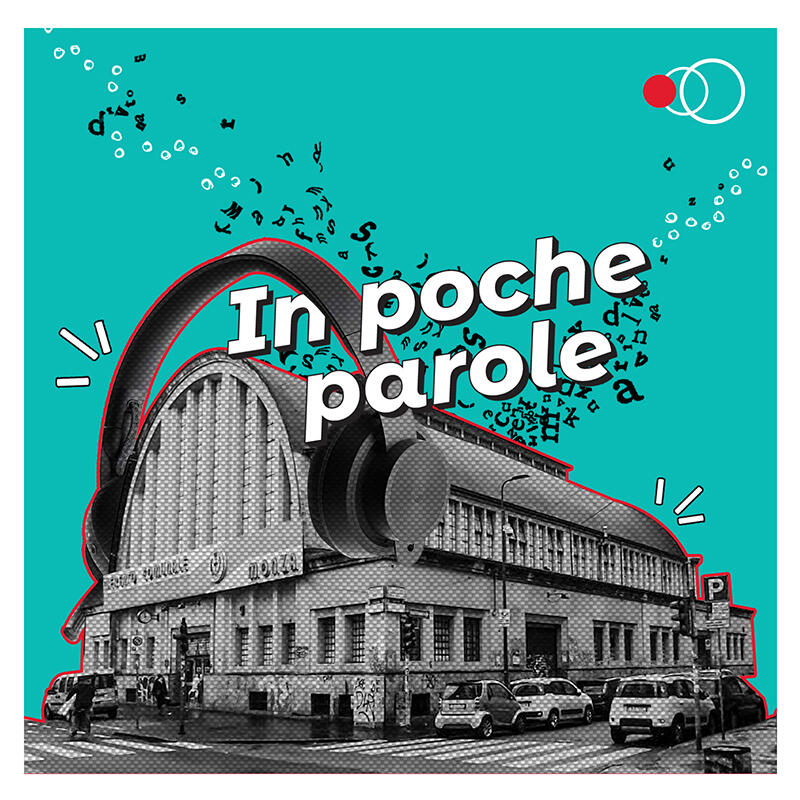The project Vocabolario di quartiere (neighbourhood vocabulary) is framed within an ongoing experimentation of Politecnico di Milano in the city of Milan, in an urban lab entitled “Off Campus Nolo” (http://www.polisocial.polimi.it/it/off-campus/) coordinated by the Polimi DESIS Lab based in the local covered market in the NoLo neighbourhood (Milan). This initiative has been taken to make the presence of the University in the city more tangible and provide the university the possibility to be more open and close to the territory and its community. The vocabulary is an ongoing project in which the Polimi DESIS Lab researchers (Virginia Tassinari, Davide Fassi, Francesco Vergani, Ambra Borin), and students (Elisa Scrignar and Maria Maramotti) are currently exploring ways to generate conversations around key concepts and keywords considered central to the neighbourhood by its inhabitants. Moreover, the choice of keywords addresses various points of view (human, but also non-human). The idea is that the vocabulary becomes an agonistic space in which to dis-articulate and re-articulate points of view, illuminating unexpected similarities and revealing possible divergences, in order to develop a cultural discourse on the neighbourhood by the neighbourhood. Specific attention is paid to the vocabulary’s potential to include (ontologically) different voices, bringing them in dialogue with one another. It creates the opportunity to identify which common matters of concern might connect them and which new courses of transformative action for the neighbourhood could address them (envisioned and given back to the citizens as seeds for possible future design interventions in the city).
These diverse voices, comprised in the diverse versions of the physical and digital vocabulary are collected through workshops in which the researches use vocabulary toolkit cards and co-design sessions, neighbourhood interventions, individual interviews (online and offline) with inhabitants but also scientists, linguists, philosophers, writers, artists, who help them identify different nuances and points of view on the same word. While the non-human points of view regarding those words is provided by scientists (botanists, zoologists, geologists, microbiologists, etc.) the design researchers want to make sure that also more diverse human points of view are addressed, and therefore they pay special attention to marginalised communities. By bringing together all these voices, they intend to identify the radical interdependency connecting the diverse agents inhabiting the contemporary city, redrawing the connection between the environment and the society: on the level of the neighbourhood, particularly focusing on what requires care in the neighbourhood, what should be cared about, and what the citizens should do to really care. As transformations can only happen starting from a deep understanding of one’s own context, the vocabulary works in a situated way, and relating the situated knowledge developed in NoLo to the bigger picture, with other contexts, in order to allow cross-fertilisation of insights and ideas and stimulate mutual learning.
The vocabulary – both a digital as well as a physical artefact that has many versions as it grows through time, accordingly to the diverse voices gathered and that can be spread in the neighbourhood in many different forms – is also the protagonist of the podcast “In poche parole”, a radio program monthly broadcasted from the Radio NoLo recording studio hosted in the Off Campus spaces and developed in collaboration with them (radionolo.it). In it, the vocabulary is enacted, allowing a confrontation between the diverse points of view, articulating a reflection and engaging citizens to continue the conversation on social media platforms.
Each month a specific word is chosen as a common thread to provoke new thinking about what could happen in the neighbourhood related to that specific notion. Each month, Off Campus hosts co-design sessions in its space with passers-by and specific focus groups, and showcases the diverse ideas emerging from these encounters, the conversations and the social media activities. In this way, the market becomes a physical agorà, in which conversations can take place, reflections on the words can be shared, and new courses of actions can be designed, prototyped, and start a new life.
Conceptual framework:
Hanna Arendt, The Human Condition, Chicago: University of Chicago Press, 1958.
María Puig de la Bellacasa, Matters of Care, Minneapolis: University of Minnesota Press, 2017.
Arturo Escobar, Designs for the Pluriverse, Durham: Duke Press, 2018.
Donna Haraway, Situated Knowledges: The Science Question in Feminism and the Privilege of Partial Perspective, in “Feminist Studies”, Vol. 14, No. 3 (Autumn, 1988), pp. 575-599.
Bruno Latour, Down to Earth, Cambridge: Polity Press, 2018.
Bruno Latour, Facing Gaia, Cambridge: Polity Press, 2017.
